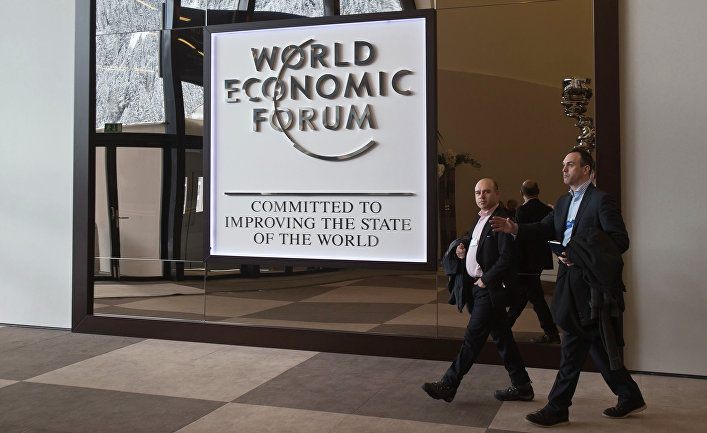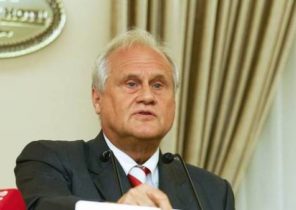
World leaders gathered in Davos for the annual conference of the world economic forum (WEF), these are troubled times. For 2016, the voters expressed their opinion in the UK, USA and Italy, and their choice was interpreted as a challenge to the middle class of those in power.
Not far off elections in the Netherlands, Germany and France. Some world leaders, including French President Francois Hollande, German Chancellor Angela Merkel and canadian Prime Minister Justin Trudeau, chose not to participate in the meeting of the WEF, and to explore issues of concern to voters.
Even Switzerland, that Bastion of comfortable life, wealth, and well-balanced policy in recent times is experiencing the results of political polarization and contentious referendums.
VEF is determined to accept the challenge, choosing for their meeting this year the slogan is “Responsive and responsible leadership”. Leaders must “listen, should interact with those people who have entrusted them with the leadership,” said on the eve of the forum the founder of the WEF Klaus Schwab. “But just listening is not enough, you need to act, to be responsible, you should have the courage to make decisions that would improve the situation in the world.” “We hope that this time the world will listen better to this idea than they did over the last few years,” he added.
Louis Perron (Perron Luis), a political analyst, advising a number of Swiss and foreign clients, believes that Western elites are now paying the price for its inept response to those rapid changes taking place in the world where people are increasingly concerned about issues related to work, immigration and welfare in the future.
“The elite doesn’t understand what they say ordinary people, and instead to adjust their message, leaders repeat the same as before, only louder,” he says in an interview with swissinfo.ch. “This leads to a mismatch between demand and political deals, so people voting for something fundamentally different.”
“Every election campaign or a referendum is a battle to clearly define what we are voting for. The ruling party increasingly lost in this battle. Once leaders begin to lose in the dispute, it becomes very difficult to catch up,” he said.
The Swiss referendum
The decision of the British voters to withdraw from the European Union, which coincided with the fact that in the US political dynasty, Clinton was rejected by voters in favor of unwilling to compromise “outsider” Donald trump is perceived as evidence of the widespread frustration in the system manual.
In Switzerland voters also have an opinion. In recent years, they were given the opportunity to Express it in a number of referendums designed to change the established order of things. Among the issues discussed including the minimum wage level, changes in policy of the Central Bank and the methods of provision of public services.
Most of the initiatives did not receive support, but the adoption of those which focused on the income of particularly privileged individuals, and high levels of immigration in recent years has become a headache for leaders in politics and business. This has forced the business community in Switzerland to accept the fact that they need to re-establish contact with politicians and voters.
In a study published in November, the Bank UBS considered the idea that the main driving force of unrest among the electorate is the middle class. This phenomenon is definitely more evident in Western countries, according to the Swiss Bank. As stated in the study, in the emerging economies, the middle class is increasing and becoming more prosperous.
But the Bank UBS also believes that the Swiss middle class is a special case for the countries of the West. He believes that the Swiss government is doing a good job at reducing income inequality, giving preference in respect of taxes and benefits low-paid segments of the population. Moreover, the report also States that a reliable system of vocational education and the liberal labor market of Switzerland helped to save jobs.
The anger of the unions
The Swiss Federation of trade unions, however, disagree with this rosy assessment. In his Memorandum last year she complained that groups of individuals with average and low income are more affected from a sharp increase in the cost of health insurance than a group of individuals with high incomes.
Persons with low income depend more on old age pension programs than the rich people who retire can use other accumulated investments.
The unions have joined forces with left-wing policies for the organization of a referendum in which next month voters will refuse to offer a complete revision of the system of corporate taxation in Switzerland. They appeal directly to the voters from the middle class with a proposal to thwart the tax changes, which, according to them, will lead to the fact that the costs of transnational corporations in Switzerland will be shouldered by the middle class.
Louis Perron is confident that, whatever the results of the referendum, the Swiss voters in the bulk will be more disciplined than in neighboring States. “The Swiss are not only not inclined to vote out of a sense of anger or just for their own benefit, but also much more inclined to consider the arguments concerning the common good,” he says. “So they vote predominantly in accordance with the recommendations of the government.”
“Voters in most other countries do not have the same opportunities to voice their protest, therefore, elections can lead to more extreme results.” At the annual meeting of the WEF 17-20 January this year in Davos, leaders will discuss how to avoid such a sad fate.







